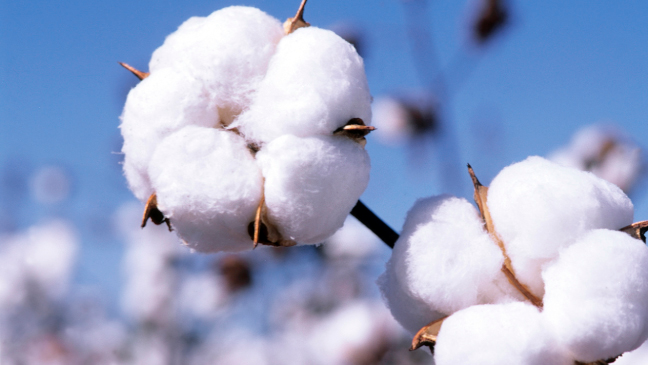"The Unites States is by far the largest producer of corn in the world. It produces 32% of the worlds corn crop in early 2010. Corn is grown over 400,000 U.S. Farms. The U.S. exports about 20% of the U.S. farmers corn production. Corn grown for grain accounts for almost one quarter of the harvested crop acres in this country."
Soybeans
"Approximately 3.06 billion bushels of soybeans were harvested from 73.6 million acres of cropland in the U.S. in 2011. This acreage is roughly equivalent to that of corn grown for grain. Soybeans rank second, after corn, among the most-planted field crops in the U.S. Over 279,110 farms in the U.S. produce soybeans making the U.S. the largest producer and exporter of soybeans."
Wheat
"Over 160,810 (2007 Census of Agriculture)farms in the United States produce wheat and wheat production exceeds 2.27 billion bushels a year. The U.S. produces about 10% of the world's wheat and supplies about 25% of the world's wheat export market."
Cotton
"Fewer than 18,605 (2007 Census of Agriculture) farms in the United States produce cotton (2007 Census of Agriculture). Cotton is grown from coast-to-coast, but in only 17 southern states, concentrated in California, Texas, and the Southeast. According to the National Cotton Council of America, farms in those states produce over 30% of the world's cotton with annual exports of more than $7 billion"

Grain sorghum
"In the United States, 26,242 farms grow grain sorghum. Grain Sorghum used primarily as an animal feed, but also is used in food products and as an industrial feedstock."
Twenty two million farms dot Americas landscape. About 97% of the U.S. farms are operated by families, individuals, family partnership or family corporations. Farm and ranch families comprise just 2% of the U.S. population. More than 21,000,000 American workers produce, process and sell the nations food and fiber.
-I believe that one of the biggest issues with the food production in the U.S. is that it is not controlled by a family farm, growing food for people, families and communities, while maintaining bio-diversity; it has become a large corporate industrial agriculture farms, where these machines have replaced farmers. As a result we see a disconnect between us as a community and the food system where we have been reduced to just consumers.
No comments:
Post a Comment